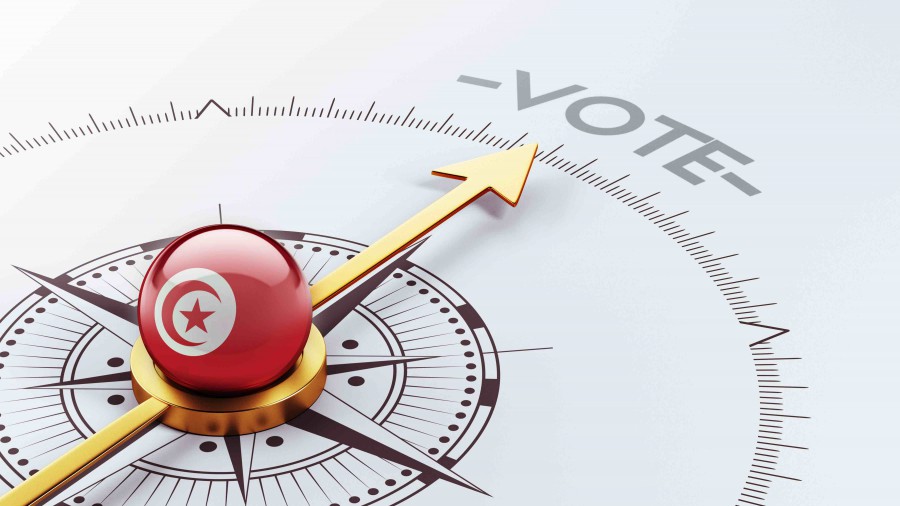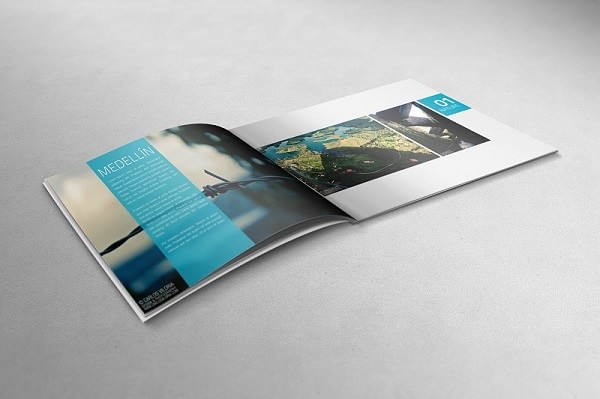Observations from a Polling Center Overseer

I had the great honor to work for the Independent High Authority for the Elections (aka ISIE) during this last 2014 elections, as a polling center agent in Washington DC. Now that elections are over, I would like to write some few words to reflect back on the experience, not only for historical documentation purposes, but also to offer some insights, opinion and some suggestions for the future. Indeed, we (human beings), learn from past experiences only when we get the chance to reflect upon them.
The goal of this opinion/reflective piece is not a pure criticism just for the sake of it, neither to ramble about something in what I would prefer to call “e-nagging”. It actually aims at (1) highlighting few key elements of the 2014 Tunisian elections that I had to deal with in my work experience with the ISIE, and (2) to suggest few ideas that can serve as real solutions to solve some problems that obstructed these key elements, once and for all, I hope. I would like also to ask the ISIE board to engage in an open dialogue and execute real evaluation of its work in order to not do the same mistakes in the future. With the help of the civil society that observed elections in Tunisia like I-Watch, ATIDE and Mourakiboun, I’m sure the process will be fruitful.
I honestly think that the fact we (Tunisians abroad) have the right to vote while we reside out of Tunisia and pay no taxes or whatsoever for our home country is something we have to be proud of (and may be very thankful for also). Serving my country while it’s passing the Huntington Test is an experience I will always cherish. Leaving this grand legacy to my future kids and grandkids is for sure vigorous.
Key elements of the 2014 Tunisian elections that I had to deal with:
There are three key elements in the elections process that I would like to focus on: (a) the registration of voters, (b) the actual voting process, and (b) the counting of ballots. The reason I’m focusing on these three elements is because I had the chance to interact with the outcomes of these three processes. Needless to say, I do not prefer to talk about something that I don’t know or I didn’t experience.\
The Registration of voters:
By now, almost every Tunisian who lives abroad can agree on the fact that ISIE did not well manage (or shall we say messed up?) the list of voters (aka the official voters books) abroad. This was due to miscommunication, tight time frame and the use of unreliable human/technological structures.
The miscommunication flourished out of confusion between two voter types: the first type are voters who registered in 2011 elections and voted. The second type are those who VOTED in 2011 elections WITHOUT registration. It seems those who came during the October 23rd 2011 weekend, presented their Tunisian national ID/Passport, got added manually to the voters list and voted, all on the same day, were not transferred to the official voters list for the 2014 elections. Unlike 2011, the new ISIE board decided not to allow same day registration and voting. Most of 2011 unregistered voters that I had the chance to talk to claimed that they called the embassy (which has no involvement with ISIE or any electoral process) and they were informed that since they had voted in 2011, they should be added to the 2014 list automatically, which is not true at all. ISIE put together a registration checking website. How many of those callers got directed to that website? Very few of them if not any. Under that false information, they came willing to vote (some of them drove or flew long ways) and found us (the voting stations’ agents) denying them to vote. Some argued a bit with us then left, some actually took it to the next level and insulted us, and some even threatened to sit in the embassy until we allow them to vote. NYPD, for example, had to interfere with angry Tunisian citizens in the NYC Manhattan voting bureau during the legislative elections, October 2014. Of course, we had no solution for unregistered voters since we had a straightforward process: if the name of the voter is on the list, s/he is allowed to vote, otherwise, none can vote without being on the voters list.
Tight time frame and the use of unreliable human/technological structures; ISIE and its volunteer team in the US (kudos to their hard NOT paid work) did their best during a 6 months’ time frame to get people registered. However, they couldn’t (of course) reach everyone. Moreover, the website was totally dysfunctional for a lot of people. I myself (who happens to do online interface and instructional design for a living) found it clunky, not easy to navigate, slow and totally upsetting, mainly when dealing with the captcha errors! Needless to say, it’s not mobile compatible and has not a valid SSL certificate…
Miscommunication and the use of unreliable structures to register voters resulted in anger and pessimism among many Tunisians I talked to. This can be seen clearly in the Tunisians abroad social media groups as well as the so low voting turnout (less than 25% voting Turnout in the US, for example).
The solution to this problem is quite clear if not easy:
1-ISIE needs to put an efficient/robust, and I cannot stress this enough, easy to use registration system for all Tunisian voters; broad and in Tunisia. This system needs a well-functioning database of every 18+ years old holder of a Tunisian passport or a national ID as well as every single person who is already now registered. This system also needs to communicate with the databases located in Tunisia to pull/push updates instantaneously.
2-This system should be up online soon (in less than 6 months from now if possible) and need to be open for access/change voting stations until the next elections. This way, ISIE can allow voters a 5 years’ time frame which is more than plenty of time.
3-Communication in this case has to be clear, concise, accurate and free of legal jargons (seriously, dump it down a bit ISIE folks. Not everyone went to a law school like you guys did). Embassies should ONLY direct callers to the website to access this system and DO NOT give any information about it unless specified.
4-National ID and passports issuing units (in Tunisia and in the embassies) can also direct users to register when they use the unit’s service to get a new passport or an ID.
A well-designed system that needs a functioning, secure and up-to-date database is strongly (and urgently) needed. A partnership with Google or with one of the innovative tech companies in the world would result into state of the art online registration system, a well- functioning and secure database that will be the building block of the ideal computerized elections system.
The Voting:
For most of the Tunisians living abroad, voting requires travel. In the US (which is the size of the European continent by the way; a fact that many seem not to realize) most voters have either to fly or to drive long ways to reach one of the 5 voting bureaus. This requires planning, taking a day off maybe and some expenses that not everyone can afford. Also, since our Tunisian elections was done in three stages, that means expenses plus planning, plus travel time need to be multiplied by 3! That’s, indeed, hectic. For someone like me, who lives in Kansas, I had to fly 3 times to DC, drove 6 times 3 hours to reach an airport and take 7 days of vacation. As most of you know, flying is not cheap in the US at all.
The solution to this problem:
1-If we are talking about two elections (legislative and presidential) that will happen every 5 years, merging these two to the same day will be great! This way, we will need only another run off in case a presidential candidate could not get 50%+.
2-We really need to allow voters to vote without the need to come to a voting bureau. An online system will be ideal! Realistically, we can, at least, start by an absentee ballot that voters must request in specific time frames and send no later than the elections days.
Counting the ballots:
Counting the ballots is a manual process that takes about 2 to 3 hours if not more. This process is not only tiring but also (very) time-consuming. It takes ISIE more than 24 hours to do all counting and run the statistical reports. Nowadays, where information surfs the universe in the speed of light, waiting 24 hours to find a result that can be easily found using scientific methods and technological tools in few minutes, is a total waste of time. That’s why mass media in Tunisia went for projecting the winner(s) based on exit polls that are mostly a bit far from the real numbers.
The solution to this problem:
1-Using a ballot machine (pretty much a computerized system) instead of paper based ballots and a box will be much more efficient. These machines can generate numbers in few seconds and thus, we can know who is the projected winner based on real numbers by 8 PM Tunisian local time (2 hours after the voting stations in Tunisia close for business). By 2 AM next day and as soon as the voting bureau in San Francisco closes, we can know the final counts.
Overall….
As you can see by now, I’m calling for the effective/efficient use of technology to make our elections processes efficient, accurate, sustainable, and most importantly, reliable. I also would like to stress that Tunisia (and ISIE in specific) does NOT need to reinvent the wheel. It’s actually a huge waste of time, money and resources if we do so. We can look at other democracies around the world and adopt their savoir faire. I would look at the US, for example, for computerized systems and the absentee ballots option. We greatly need to stop re-inventing the wheel, find progressive solutions to the above mentioned problems that (can potentially) ruin our elections. We should stop naive practices like this blue ink, for example, and thus, make one of the best democratic manifestos a great SUCCESS! Yes, we have a democracy now but the real challenge for us, Tunisians, is knowing how to keep it.
related news


About the author
Rad Aniba